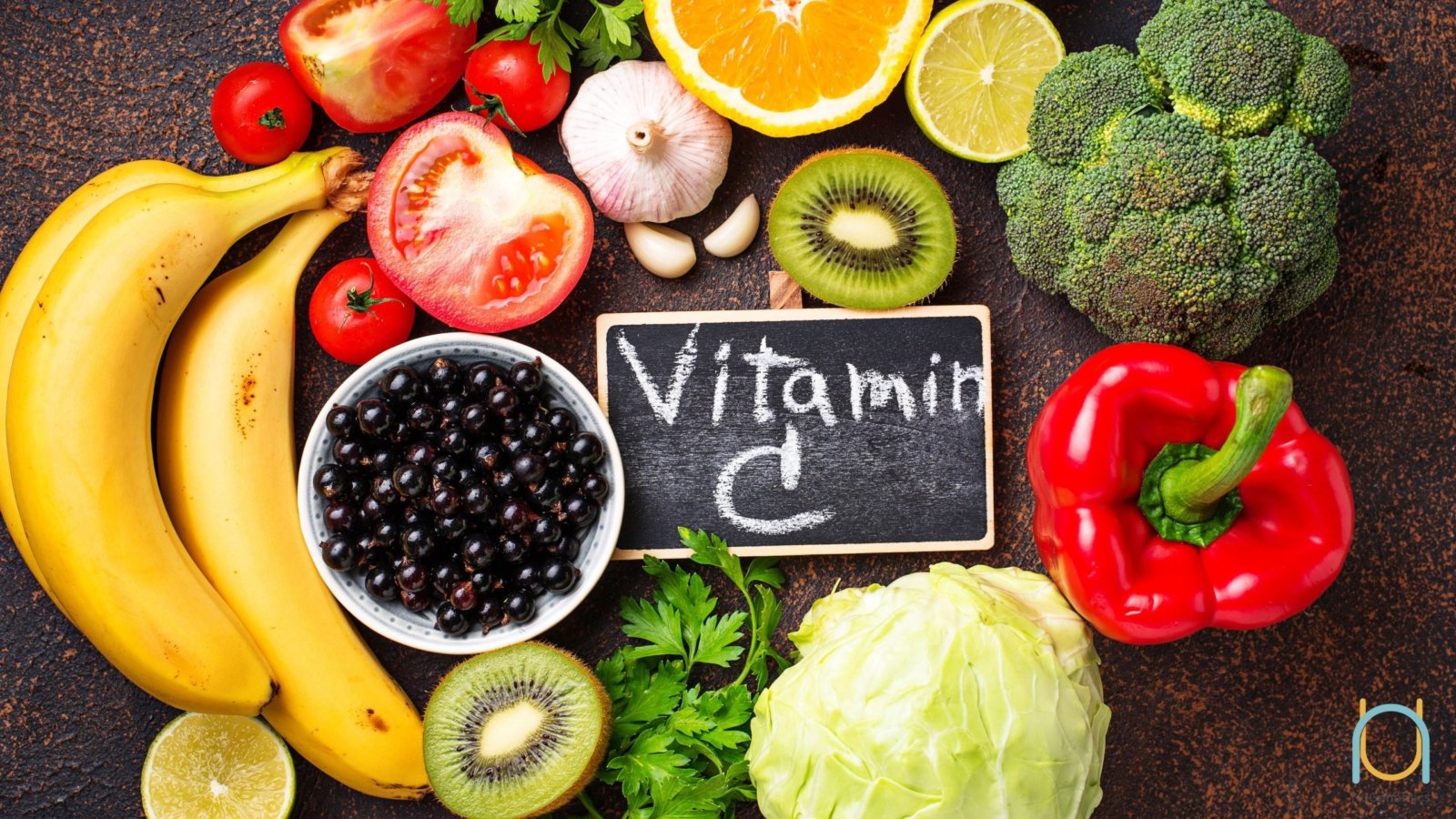Vitamin C deficiency can occur due to poor diet, smoking, alcoholism, dialysis or type 1 diabetes.
But what is vitamin C and why is it important for your body? Let’s take a look at it.
Vitamin C, otherwise known as ascorbic acid, is a water-soluble vitamin. It is called an essential nutrient because it can’t be produced by your body on its own.
Vitamin C helps to control your infections and heal your wounds, as it can effectively neutralise free radicals and help you keep your immune system strong.
It also helps in an important function to make collagen, a fibrous protein that provides structure and strength to your skin, bones, muscles and connective tissues.
Vitamin C helps in the making of numerous hormones that are used in your brain and nerves. It also helps in the absorption of iron and the optimal functioning of your immune system.
A fewer studies have indicated that Vitamin C can improve age-related macular degeneration (AMD) and minimise your risk of heart disease and cancer.
A diet limited in fruits and vegetables or a diet limited to less than 10mg of vitamin C intake for a month can cause vitamin C deficiency in you.
Vitamin C deficiency can cause fatigue, weakness and other symptoms. It can also lead to more serious issues such as scurvy, anemia and osteoporosis.
There are two main forms of vitamin C: Ascorbic acid (vitamin C) and Dehydroascorbic acid (oxidised form of ascorbic acid).
Symptoms of Vitamin C Deficiency
The following are some of the common symptoms of vitamin C deficiency.
Causes and Risk Factors
While a diet low on fresh fruits and vegetable can cause vitamin C deficiency in you, there are other factors that can cause this deficiency. Some of them are:
Treatment of Vitamin C Deficiency
Your vitamin C deficiency can be easily treated by increasing your intake of vitamin C through your diet.
Most of the vitamin C needed for your body is contained in fresh fruits and vegetables, such as tomatoes, green peppers, strawberries, broccoli, citrus fruits, guava, white potatoes and sweet potatoes.
Your Doctor may put you on some vitamin C supplements as part of your treatment for your vitamin C deficiency.
Once your treatment beings, you may start feeling better within 48 hours, or at best you could make a full recovery within 2 weeks.
However, pregnant women need to consult their Doctors before consuming vitamin C supplements for any possible side-effects.
Vitamin C is prone to be destroyed by light and heat, so do not cook your food in high temperature or cook for longer time. This is because these things can break the vitamin. To preserve the vitamin, use less water to cook and reduce your cooking time.
Also, ripe fruits (not over-ripe) contain great amounts of vitamin C, which can help treat your vitamin C deficiency. Also, eating raw vegetables can help you in the treatment of vitamin C deficiency.
And, here are some of the foods that contain vitamin C in rich measure.
Your Daily Recommended Intake
Your daily recommended intake of vitamin C, measured in milligrams (mg). Mentioned in the table are your Recommended Daily Allowance (RDA) and Tolerable Upper Intake Levels (ULs).

Vit C Chart Source: Johns Hopkins Healthcare
Bottomline
Vitamin C deficiency is rare, but it can occur in you if you’re low on fruits and vegetables.
Your body can’t make the vitamin on its own, so you have to get it from your foods.
A good, balanced dietary practise can help you overcome this deficiency and lead a healthy life.
Eating one orange a day can help you increase the vitamin levels in your body.
Variations in your genes can lead to vitamin C deficiency, but with proper dietary recommendations, you can overcome this disorder easily.
In a word, keep your fresh fruits and raw vegetables on your high priority list, if you want to overcome your vitamin C deficiency.
If you have a question related to this blog post, write to us here and we will update this post with a response.
Sources: WebMD, Harvard T.H. Chan School of Public Health, Healthline, MSD Manual, Patient, Medical News Today, NHS, Healthdirect, Johns Hopkins, Mayo Clinic, Dr. Axe, American Academy of Ophthalmology and National Library of Medicine.
If you have any more questions, please feel free to write to us at support@nugenomics.in or call us directly at +91 9176655912
You can also visit Here to know more about how we can help you and make your life better.
 Cart is empty
Cart is empty 
Add a Comment